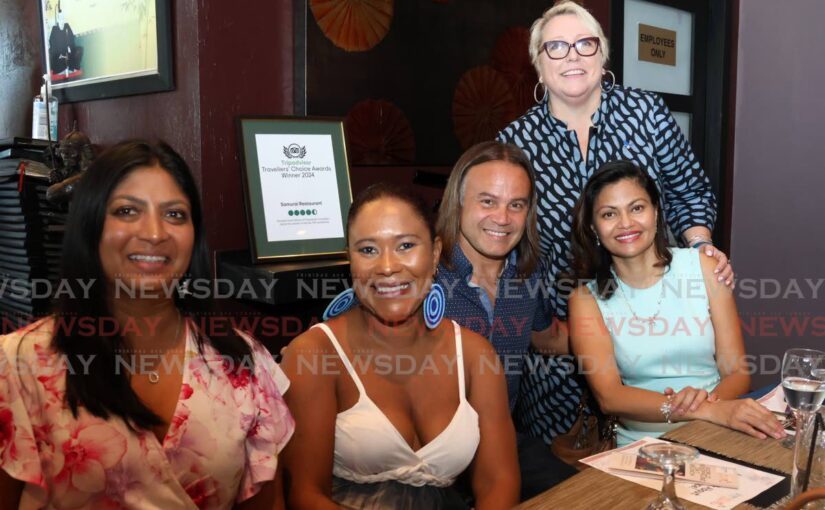THE EDITOR: TT, suicide is preventable. Remember that. Suicide is a serious public health problem that can have long-lasting effects on individuals,...
Vous n'êtes pas connecté
- English
- Français
- عربي
- Español
- Deutsch
- Português
- русский язык
- Català
- Italiano
- Nederlands, Vlaams
- Norsk
- فارسی
- বাংলা
- اردو
- Azərbaycan dili
- Bahasa Indonesia
- Հայերեն
- Ελληνικά
- Bosanski jezik
- українська мова
- Íslenska
- Türkmen, Түркмен
- Türkçe
- Shqip
- Eesti keel
- magyar
- Қазақ тілі
- Kalaallisut ; kalaallit oqaasii
- Lietuvių kalba
- Latviešu valoda
- македонски јазик
- Монгол
- Bahasa Melayu ; بهاس ملايو
- ဗမာစာ
- Slovenščina
- тоҷикӣ ; toğikī ; تاجیکی
- ไทย
- O'zbek ; Ўзбек ; أۇزبېك
- Tiếng Việt
- ភាសាខ្មែរ
- རྫོང་ཁ
- Soomaaliga ; af Soomaali
Rubriques :
 Maroc - NEWSDAY.CO.TT - A la Une - 10/Sep 08:07
Maroc - NEWSDAY.CO.TT - A la Une - 10/Sep 08:07
Change narrative on suicide
THE EDITOR: The month of September is designated globally as world suicide prevention month, September 10 being World Suicide Prevention Day. The International Association for Suicide Prevention (IASP) has since released the triennial theme for 2024-2026, which is "Changing the Narrative on Suicide." There is a call to action to "start the conversation" in our homes, work spaces and wherever there is someone who is struggling with suicidal ideation. This theme aims to raise awareness about the importance of reducing stigma and encouraging open conversations to prevent suicides. It emphasises the importance of the language we use when we talk about suicide – not blaming or judging, but being empathic and compassionate, especially when asking someone you are worried about if they are having thoughts about suicide. Changing the narrative on suicide is crucial for several reasons, especially in Caribbean territories where there must be a concerted shift from a culture of silence and stigma to one of openness, understanding and support. In TT, mental illness and suicide are still stigmatised to a large extent and people are hesitant to trust others with their mental-health complexities or to seek help due to feelings of shame or fear. A narrative which is instead focused on hope and resilience can highlight to others that suicide is preventable and can inform relatives and close friends about the signs to look out for when a loved one is in distress. In August a regional coalition was formed in the Caribbean with the intent of decriminalising suicide in TT, the Bahamas, Grenada and St Lucia. This changing landscape of advocacy for mental illness to be seen as a public health issue seeks to influence policymakers to prioritise mental health, improve and increase access to care, and invest in robust data collection for effective prevention and evidence-based interventions. Part of this advocacy is public awareness of the major life crises that might trigger a suicide attempt, such as the death of a loved one, divorce or break-up of a relationship, a diagnosis of a major illness, or serious financial problems. Red flags to note are when a person or loved one considering suicide begins to put his or her personal business in order, gives away personal possessions, makes a will or buys a firearm or other means like poisonous substances. Let us start the conversation. It is time. Encourage individuals, communities, organisations and governments to engage in open and honest discussions about mental illness and suicide. By starting conversations we can break down barriers and raise awareness, check in with a friend or family member, share personal stories and advocate for increased and accessible mental health resources and support services, especially for those groups that are marginalised. Some step-by-step effective ways that you can start a conversation are as follows: * Firstly, choose the right time and place to talk, possibly a quiet setting where you will not be interrupted. * Secondly, give the person enough time and space to share their story with you. Do not hurry them or look at your watch. It is okay to ask directly about suicide. You can start with something like, "I’ve noticed you’ve been going through a rough time lately. Are you thinking about hurting yourself?" * Thirdly, listen to what they may say without any judgement. Allow the person to express their feelings without interrupting and show empathy and understanding by saying, “I’m here for you.” Be mindful of the words that you use. Do not be dismissive or act superior. Let them know that you care about their well-being. Most importantly, check in with them regularly to see how they are doing. * Lastly, encourage the person to seek help and guidance from a mental health professional. Do not leave them alone. There are many individuals who need our help, especially young people and older folk, the two most vulnerable categories with the highest rates of suicide in this country. Let us rally around those people in our midst who may not be okay. Let us start a conversation and change the narrative, reducing the stigma and discrimination around mental illness and preventing suicide. Wherever and whenever we can. Take care. DR MARGARET NAKHID-CHATOOR psychologist/educator co-chair, IASP/PAHO Conference 2024 The post Change narrative on suicide appeared first on Trinidad and Tobago Newsday.
Articles similaires
Lara Quentrall-Thomas: Support women going through menopause in the workplace
LARA QUENTRALL-THOMAS, Regency Recruitment and Resources Ltd founder, is hoping to develop policy guidelines and recommendations for employers to...
Prioritising mental health in workplace
THE EDITOR: “To prioritise” means to designate or treat something as being most important. The theme for this year’s Mental Health Day was "It...
Fear of crime cripples movement of people
A DAILY STREAM of reports, images and videos of crime often shared on various social media platforms is affecting the way of life of people in...
RCCG Suspends Pastor Ayo AdeBello and Deacon Oke Mayowa Over Alleged Homoséxuality
The Redeemed Christian Church of God (RCCG) has suspended two pastors – Ayorinde AdeBello and Deacon Oke Mayowa, over trending allegations of...
THE CONVERSATION: How light can shift your mood and mental health
Here are just some of the ways light is important for our wellbeing and mental health.
Meet The Commercial Agent: Jacob Campagnaro, Royal LePage Burloak Real Estate Services
Welcome to Meet the Agent, an ongoing series profiling real estate agents from across Canada. With more than 150,000 agents, brokers, and salespeople...
Beyond the Paycheck: How to Monetize Skills in the Film Industry
Workers in the film and TV industry are part of an exciting sector that allows for creative expression and offers a range of opportunities. However,...
Investigations ongoing into Jayden Lalchan’s death by suicide
AN investigation into the suicide of 15-year-old Jayden Alex Lalchan from Princes Town is ongoing. The file is with investigators from the Southern...
Bountiful harvest for Trini grape farmer in Japan
A Trinidadian growing grapes in Japan has been dubbed “the rarest man in Japan,” by an African-American influencer who featured the farmer in a...
Les derniers communiqués
-
Aucun élément









